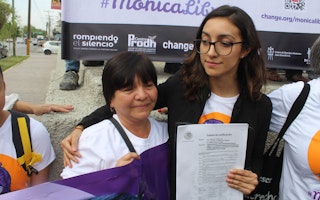The Open Society Institute–Baltimore hosts the second in a two-part forum series, "The Burden of Bail: Will the Right to Counsel at Bail Hearings Reduce the Jail Populations in Maryland?"
Cities across the country are taking steps to reduce their jail populations by increasing opportunities for people to be released to the community pending trial. One such strategy is to assign attorneys to individuals during bail hearings. In January 2012, the Maryland Court of Appeals released its opinion in the DeWolfe v. Richmond case, concluding that poor defendants have the right to be provided counsel who would argue for their release during bail hearings. Maryland policy makers are in the process of determining who will pay for this right to counsel at bail hearings.
As part of Open Society Institute-Baltimore’s commitment to advancing fair pretrial policies and practices, please join us in a series of conversations with local and national experts who will inform participants about: the current state of pre-trial detention in Maryland; local efforts to respond to the court’s ruling; and local and national bail reform initiatives.
Baltimore City is one of three counties in Maryland that assigns public defenders to defendants during bail hearings. The Baltimore City jail, which includes the Central Booking and Intake Facility and the Baltimore City Detention Center, is one of the largest in the country holding about 3,500 people on any given day. Ninety percent of the jail’s population comprises individuals who are awaiting their trial dates and are predominantly African-American men. Over one-third of the jail population is behind bars due to an inability to post bail. Many are held on low bail amounts of $5,000 or less and have been charged with non-violent offenses such as trespassing, theft, prostitution and driving on a suspended license. Jailing individuals who cannot afford to post bail not only contributes to a fluctuating jail population, but also destabilizes individuals’ employment and housing situations before they are tried and/or convicted of any crime.
The recent Maryland Court of Appeals decision in the DeWolfe case requires the Maryland Office of the Public Defender, which represents indigent defendants, to obtain the financial and workforce resources needed to provide representation at initial court appearances and bail review hearings statewide. Paul DeWolfe, Maryland’s Public Defender, and a party in the DeWolfe v. Richmond case, will discuss the steps his office is taking to comply with the court’s order.
Norman Reimer, executive director of the National Association of Criminal Defense Lawyers and former president of the New York County Lawyers’ Association, will share best practices for managing the demand for indigent defense of individuals at initial court appearances and bail hearings.
Space is limited. Please RSVP.
Read more
Homicide Reduction
Q&A: How One Colombian City Is Tackling Violent Crime

Palmira, Colombia, is one of the most violent cities in the world. But a prevention program focusing on youth has reduced crime significantly—and earned it an international peace prize. The city’s mayor on what’s working.
In Remembrance
Lani Guinier’s Overlooked Education Legacy

The late Lani Guinier thought deeply about the intersection between education and criminal justice. Her leadership at Open Society helped pave the way to colleges across the country offering higher education to the incarcerated.
WOMEN'S RIGHTS
Challenging Mexico’s Abusive Preventative Detention System

Mónica Esparza’s case is one of the most notorious cases of extreme gender violence carried out by Mexican authorities. What her story teaches about how to combat the country’s scourge of gender-based violence.